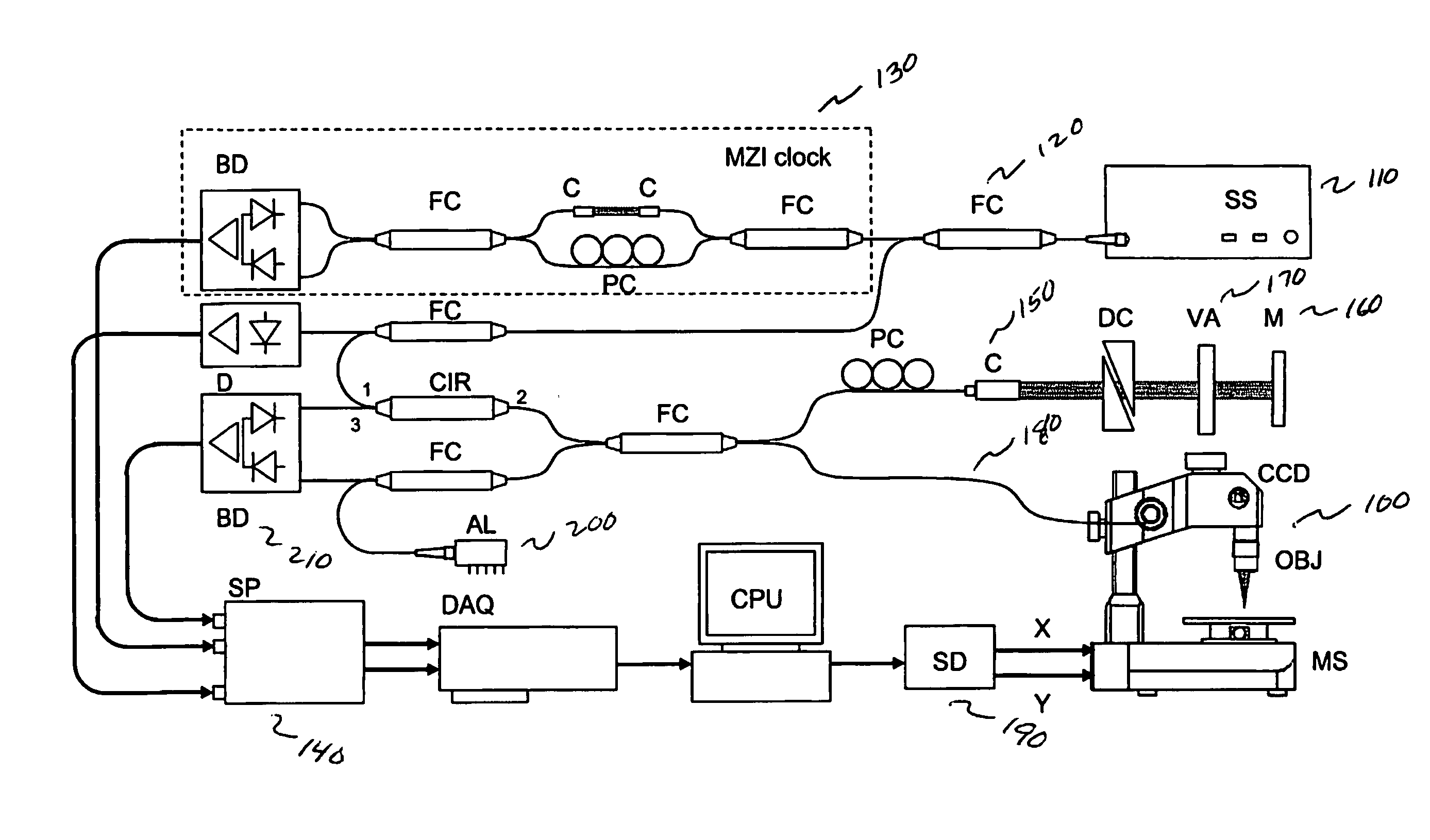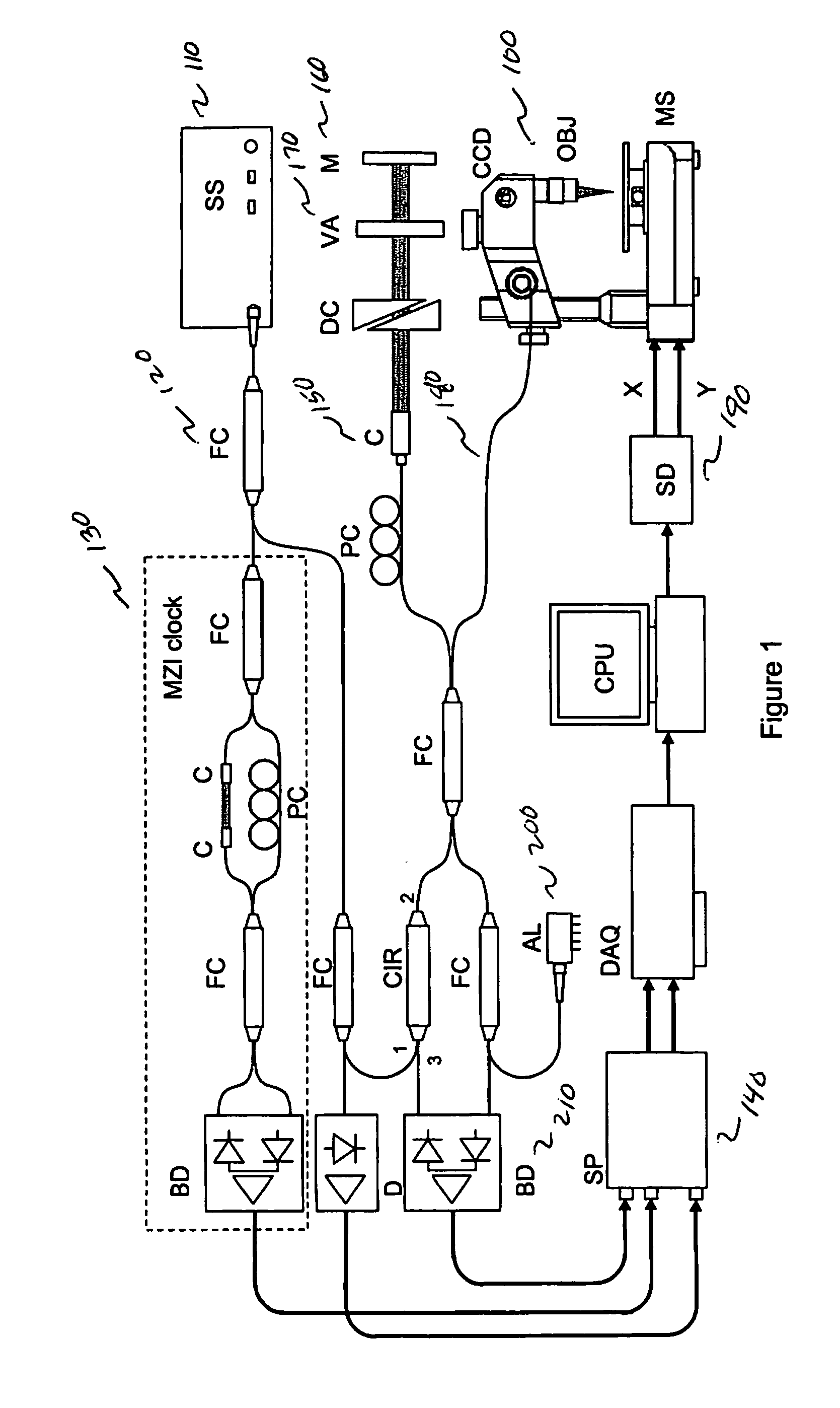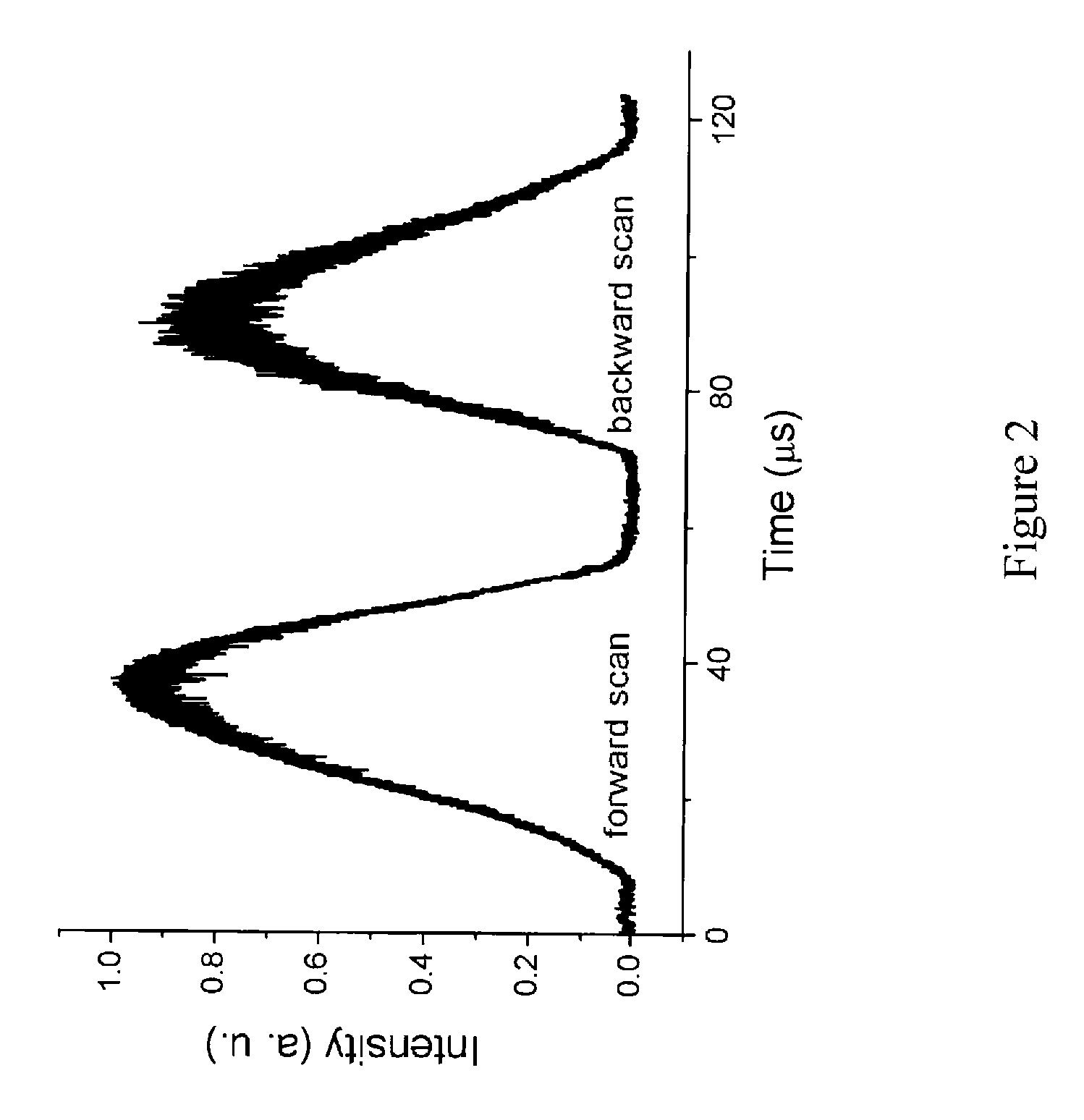Optical Coherence Tomography Imaging System and Method
a coherence tomography and optical coherence technology, applied in the field of new oct imaging systems, can solve the problems of limiting the real-time imaging speed of conventional oct systems, recalibration process, and drawbacks of swept laser based oct systems, so as to improve signal quality, improve oct imaging quality, and reduce the amount of data points
- Summary
- Abstract
- Description
- Claims
- Application Information
AI Technical Summary
Benefits of technology
Problems solved by technology
Method used
Image
Examples
Embodiment Construction
[0021]This disclosure describes the best mode or modes of practicing the invention as presently contemplated. This description is not intended to be understood in a limiting sense, but provides an example of the invention presented solely for illustrative purposes by reference to the accompanying drawings to advise one of ordinary skill in the art of the advantages and construction of the invention. In the various views of the drawings, like reference characters designate like or similar parts.
1. Principle of Swept Source OCT
[0022]In swept source Fourier domain OCT, a laser illuminates a sample with output optical frequencies sweep as a function of time. Back reflected or back scattered light from different depths within the sample is combined with light from a known delay in the reference arm to form OCT interference fringe signals. After converted to electric signals by a photodiode detector, the OCT signals are digitized by a DAQ device to discrete digital data points. A Fourier ...
PUM
 Login to View More
Login to View More Abstract
Description
Claims
Application Information
 Login to View More
Login to View More - R&D
- Intellectual Property
- Life Sciences
- Materials
- Tech Scout
- Unparalleled Data Quality
- Higher Quality Content
- 60% Fewer Hallucinations
Browse by: Latest US Patents, China's latest patents, Technical Efficacy Thesaurus, Application Domain, Technology Topic, Popular Technical Reports.
© 2025 PatSnap. All rights reserved.Legal|Privacy policy|Modern Slavery Act Transparency Statement|Sitemap|About US| Contact US: help@patsnap.com



